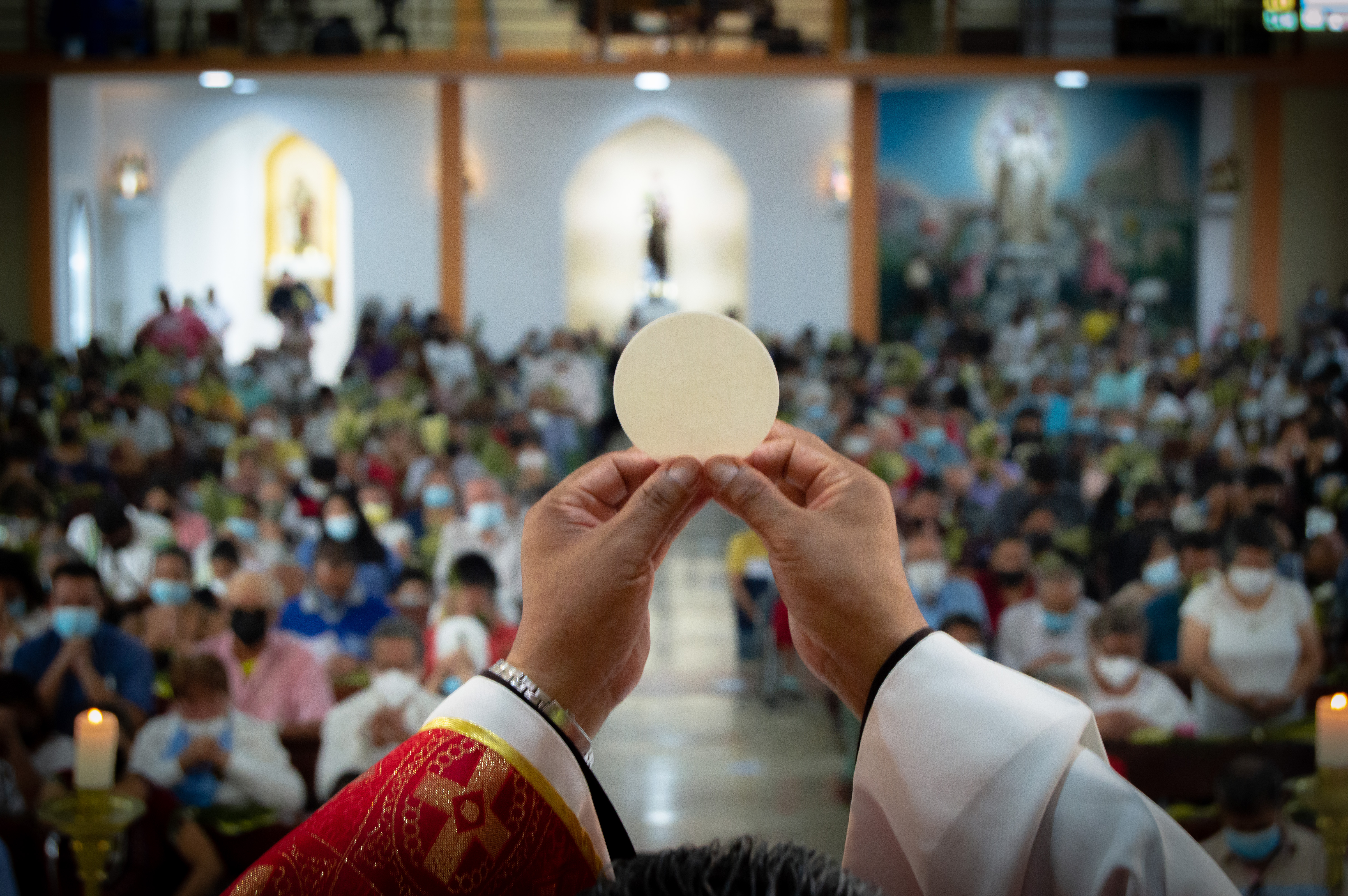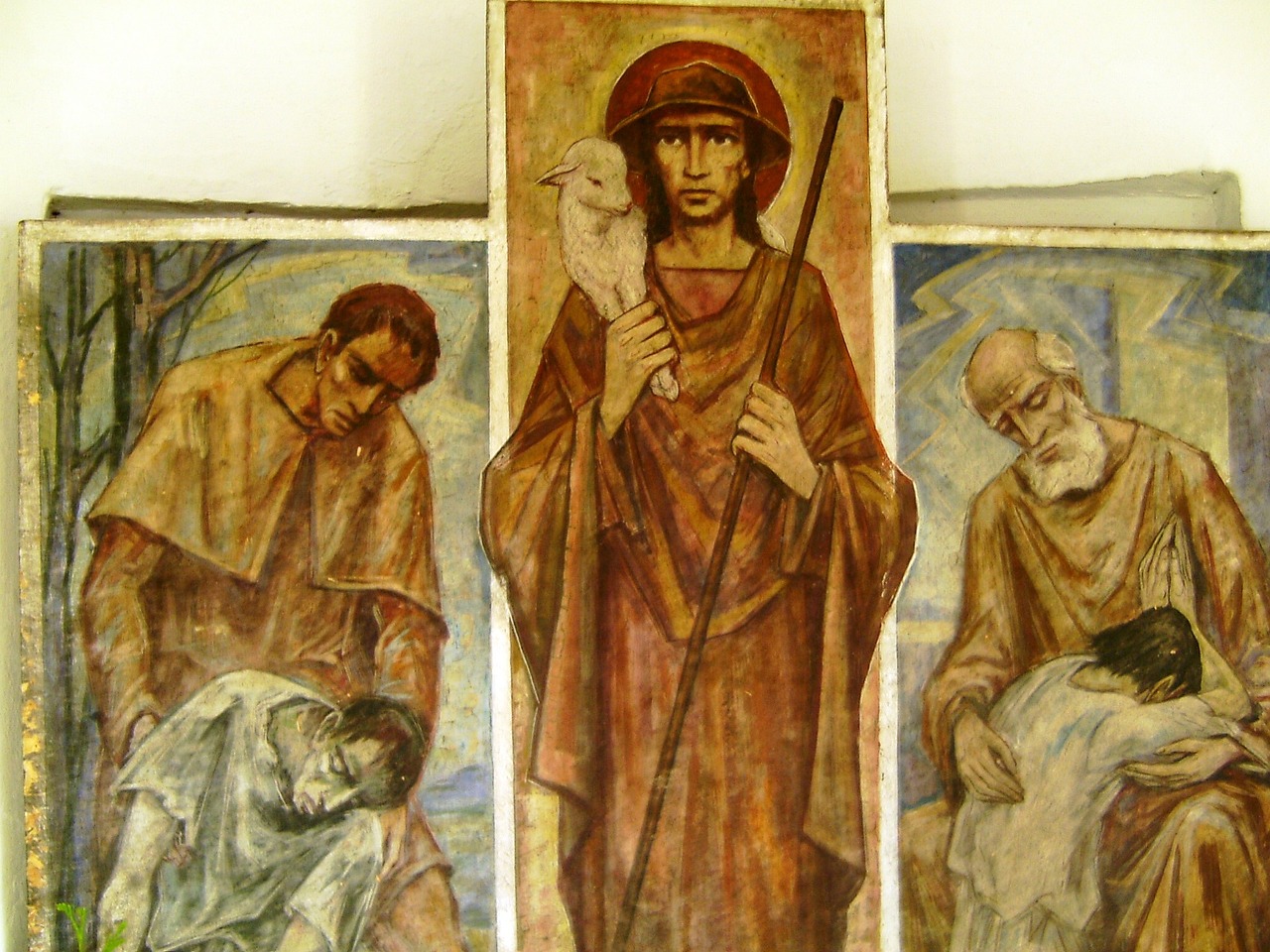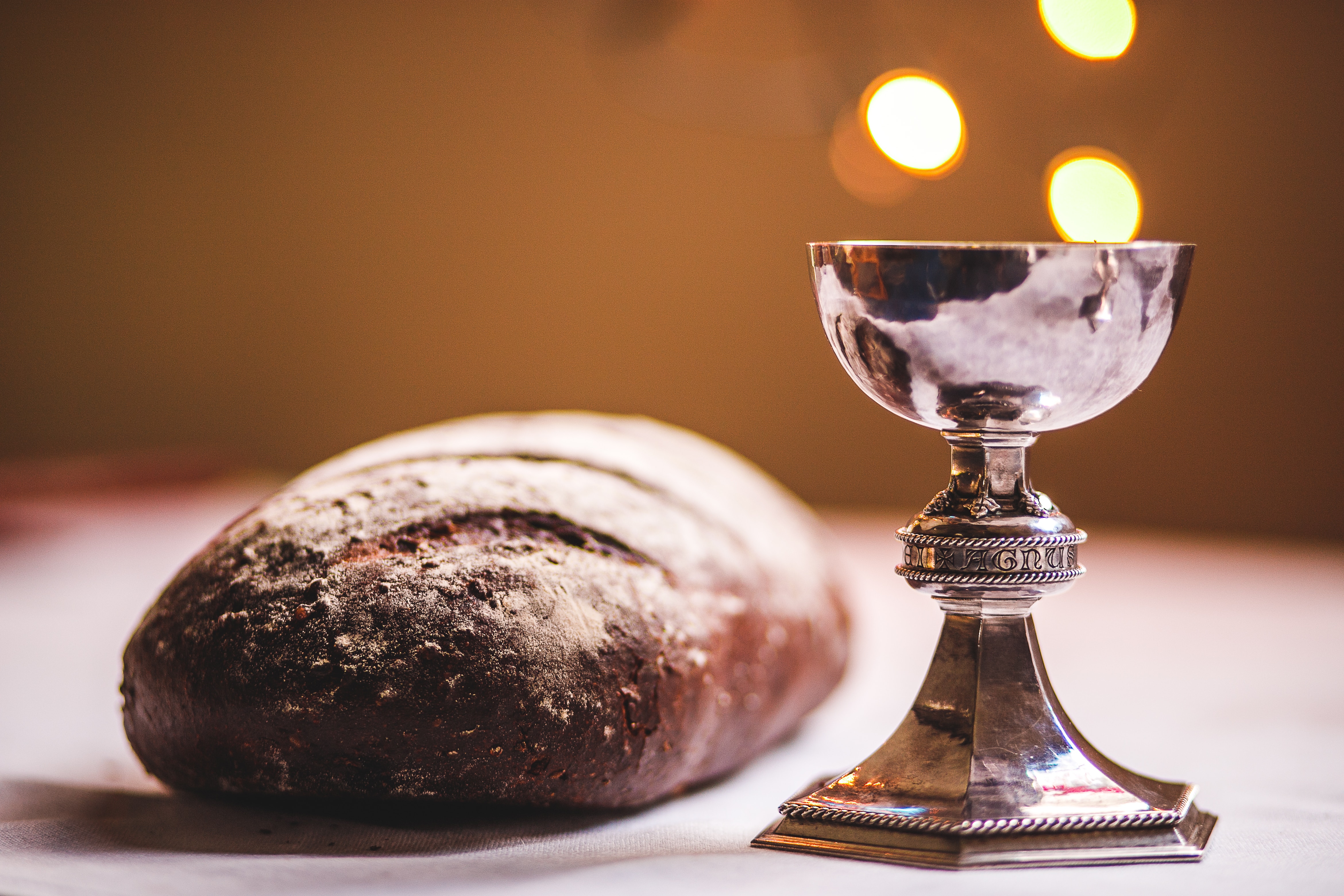It’s great to see some results for the work you put in.
For example, if you are trying to get to a healthier weight, it’s quite rewarding to know that your efforts to improve diet and increase exercise are working. If you’re trying to make a certain grade in school and get the “A”, it’s rewarding to know you put the work in to study and know the material. If you ace a presentation at work and are rewarded with a hard-earned raise, it’s great to know that the hours you put in were worth it.
In today’s Gospel, Jesus commands the Apostles to proclaim the Gospel to the whole world and to baptize new followers of Christ. Then Jesus gives an outline for how to know it’s being done correctly: demons will be cast out in his name, and many will be healed. If their hands fall upon a serpent or a poison, it won’t kill them.
Jesus knew the work of spreading the Gospel would be difficult. He knew it would cost all the Apostles, except John, their lives, and while some are still asked to give up their life for the sake of the Gospel today, it’s much fewer and far between, especially in the developed world. Still, the world finds plenty of ways for us to “pay” for spreading the Gospel: the loss of job and professional prospects, political persecution, loss of freedom of speech in some countries.
We know we are doing good things for the Kingdom of God, even when persecuted, but it’s still great to experience those “mountaintop” events in which we have confirmation we are doing great things for God. For example, when someone new joins the RCIA program, a child receives First Holy Communion, or someone surrenders their life to God after horrific pain.
As humans, we often need some encouragement to keep going. Jesus laid it all out for us, and even today, we still see not-quite-as-literal signs taking place. How are you spreading the Gospel? What signs do you see even today that God is still at work in the world? Let’s carry Jesus’ Great Commission forward, and be encouraged by the signs that God is at work even in a world of wars, famine, pain and sorrow.
Es fantástico ver algunos resultados de un trabajo realizado.
Por ejemplo, si estás intentando alcanzar un peso más saludable, es muy gratificante saber que tus esfuerzos por mejorar la dieta y aumentar el ejercicio están funcionando. Si estás tratando de obtener una determinada calificación en la escuela y obtener una “A”, es gratificante saber que te esfuerzas por estudiar y conoces el material. Si realizas una presentación excelente en el trabajo y eres recompensado con un aumento por haber hecho tanto esfuerzo, es fantástico saber que las horas que dedicaste valieron la pena.
En el Evangelio de hoy, Jesús manda a los Apóstoles a proclamar el Evangelio al mundo entero y bautizar a nuevos seguidores de Cristo. Luego Jesús da un esquema de cómo saber que se está haciendo correctamente: los demonios serán expulsados en su nombre y muchos serán sanados. Si sus manos caen sobre una serpiente o un veneno, no los matará.
Jesús sabía que la obra de difundir el Evangelio sería difícil. Sabía que les costaría la vida a todos los Apóstoles, menos a Juan, y aunque a algunos todavía se les pide que entreguen su vida por el Evangelio hoy, es mucho menos común, especialmente en el mundo desarrollado. Aun así, el mundo encuentra muchas maneras de “pagar” por la difusión del Evangelio: la pérdida de empleo y perspectivas profesionales, la persecución política, la pérdida de la libertad de expresión en algunos países.
Sabemos que estamos haciendo cosas buenas para el Reino de Dios, incluso cuando somos perseguidos, pero aún así es maravilloso experimentar esos eventos excepcionales en los que tenemos la confirmación de que estamos haciendo grandes cosas para Dios. Por ejemplo, cuando alguien nuevo se une al programa RICA, un niño recibe la Primera Comunión o alguien entrega su vida a Dios después de un dolor terrible.
Como seres humanos, a menudo necesitamos un poco de motivación para seguir adelante. Jesús nos lo explicó todo, e incluso hoy en día todavía vemos señales que no son tan literales. ¿Cómo estás difundiendo el Evangelio? ¿Qué señales ves hoy en día de que Dios todavía está obrando en el mundo? Llevemos adelante la Gran Comisión de Jesús y seamos animados por las señales de que Dios está obrando incluso en un mundo de guerras, hambruna, dolor y tristeza.
 Mary Thissen is a St. Louis native living in East Central Illinois with her husband and children. She is blessed with twin boys Earthside and four children now living in Heaven. When she is not working as a healthcare data analyst or caring for her boys, she enjoys studying and writing about the Catholic faith and ministering to women who are suffering through miscarriage or infertility. You can connect with Mary on Instagram @waitingonmiracles.
Mary Thissen is a St. Louis native living in East Central Illinois with her husband and children. She is blessed with twin boys Earthside and four children now living in Heaven. When she is not working as a healthcare data analyst or caring for her boys, she enjoys studying and writing about the Catholic faith and ministering to women who are suffering through miscarriage or infertility. You can connect with Mary on Instagram @waitingonmiracles.
Feature Image Credit: Ave Calvar, unsplash.com/photos/person-holding-babys-hand-JNwba6cv4e0


 Deacon Dan Schneider is a retired general manager of industrial distributors. He and his wife Vicki have been married for over 50 years. They are the parents of eight children and thirty grandchildren. He has a degree in Family Life Education from Spring Arbor University. He was ordained a Permanent Deacon in 2002. He has a passion for working with engaged and married couples and his main ministry has been preparing couples for marriage.
Deacon Dan Schneider is a retired general manager of industrial distributors. He and his wife Vicki have been married for over 50 years. They are the parents of eight children and thirty grandchildren. He has a degree in Family Life Education from Spring Arbor University. He was ordained a Permanent Deacon in 2002. He has a passion for working with engaged and married couples and his main ministry has been preparing couples for marriage.


 David Dashiell is a freelance author and editor in Nashville, Tennessee. He has a master’s degree in theology from Franciscan University, and is the editor of the anthology
David Dashiell is a freelance author and editor in Nashville, Tennessee. He has a master’s degree in theology from Franciscan University, and is the editor of the anthology 
 Kathryn Mulderink, MA, is married to Robert, Station Manager for Holy Family Radio. Together they have seven children (including Father Rob), and seven grandchildren. She is President of the local community of Secular Discalced Carmelites and has published five books and many articles. Over the last 30 years, she has worked as a teacher, headmistress, catechist, Pastoral Associate, and DRE, and as a writer and voice talent for Catholic Radio. Currently, she serves the Church by writing and speaking, and by collaborating with various parishes and to lead others to encounter Christ and engage their faith. Her website is
Kathryn Mulderink, MA, is married to Robert, Station Manager for Holy Family Radio. Together they have seven children (including Father Rob), and seven grandchildren. She is President of the local community of Secular Discalced Carmelites and has published five books and many articles. Over the last 30 years, she has worked as a teacher, headmistress, catechist, Pastoral Associate, and DRE, and as a writer and voice talent for Catholic Radio. Currently, she serves the Church by writing and speaking, and by collaborating with various parishes and to lead others to encounter Christ and engage their faith. Her website is 


 A lover of Jesus Christ, a wife, and a mother of five,
A lover of Jesus Christ, a wife, and a mother of five, 
 Dr. Alexis Dallara-Marsh is a board-certified neurologist who practices in Bergen County, NJ. She is a wife to her best friend, Akeem, and a mother of two little ones on Earth and two others in heaven above.
Dr. Alexis Dallara-Marsh is a board-certified neurologist who practices in Bergen County, NJ. She is a wife to her best friend, Akeem, and a mother of two little ones on Earth and two others in heaven above.
 Heather Orlowski and her husband are busy parents of two little girls (ages 2 and 4). The Catholic Church holds a special place in her heart and in her entire life. She attended Catholic schools from Kindergarten through college. She graduated from Aquinas College with a degree in Elementary/Special Education. Catholic Education is very important to her and she now teaches 1st and 2nd grades at St. Therese Catholic School. In her free time, she loves creating memories with her family and watching her little girls play soccer.
Heather Orlowski and her husband are busy parents of two little girls (ages 2 and 4). The Catholic Church holds a special place in her heart and in her entire life. She attended Catholic schools from Kindergarten through college. She graduated from Aquinas College with a degree in Elementary/Special Education. Catholic Education is very important to her and she now teaches 1st and 2nd grades at St. Therese Catholic School. In her free time, she loves creating memories with her family and watching her little girls play soccer. 
 Mike Karpus is a regular guy. He grew up in Michigan’s Upper Peninsula, graduated from Michigan State University and works as an editor. He is married to a Catholic school principal, raised two daughters who became Catholic school teachers at points in their careers, and now relishes his two grandchildren, including the older one who is fascinated with learning about his faith. He also has served on a Catholic school board, a pastoral council and a parish stewardship committee. He currently is a lector at Mass, a Knight of Columbus, Adult Faith Formation Committee member and a board member of the local Habitat for Humanity organization. But mostly he’s a regular guy.
Mike Karpus is a regular guy. He grew up in Michigan’s Upper Peninsula, graduated from Michigan State University and works as an editor. He is married to a Catholic school principal, raised two daughters who became Catholic school teachers at points in their careers, and now relishes his two grandchildren, including the older one who is fascinated with learning about his faith. He also has served on a Catholic school board, a pastoral council and a parish stewardship committee. He currently is a lector at Mass, a Knight of Columbus, Adult Faith Formation Committee member and a board member of the local Habitat for Humanity organization. But mostly he’s a regular guy.

 Kate Taliaferro is an Air Force wife and mother. She is blessed to be able to homeschool, bake bread and fold endless piles of laundry. When not planning a school day, writing a blog post or cooking pasta, Kate can be found curled up with a book or working with some kind of fiber craft. Kate blogs at
Kate Taliaferro is an Air Force wife and mother. She is blessed to be able to homeschool, bake bread and fold endless piles of laundry. When not planning a school day, writing a blog post or cooking pasta, Kate can be found curled up with a book or working with some kind of fiber craft. Kate blogs at